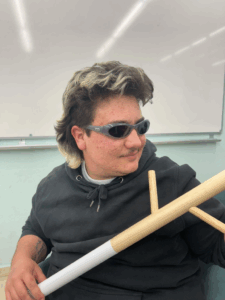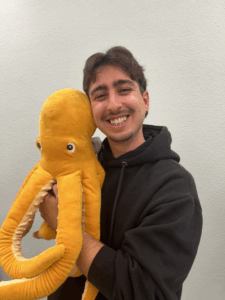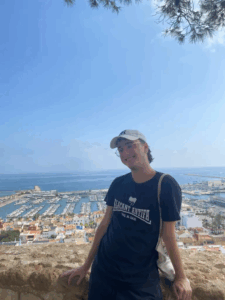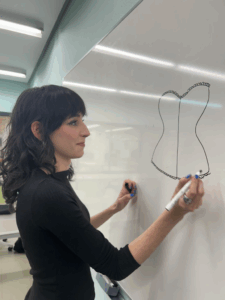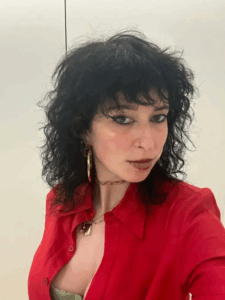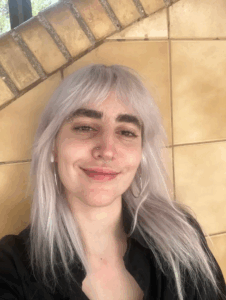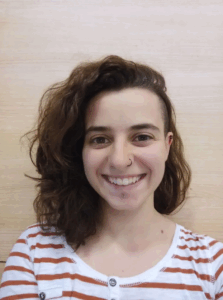Abstract
Meeting at the Intersection were a series of research exchange sessions organised by early-career researchers at the Complutense University of Madrid (Spain), with the aim of sharing research experiences within the field of Science and Technology Studies (STS). Over three days, the event featured roundtables and workshops (on oceanic studies, posthuman accounts, health practices and substance use studies, board games, art, and speculative urbanism) to collectively explore the potentialities, uncertainties, and vulnerabilities that emerge when investigating from an onto-epistemological perspective such as STS. It also sought to foster a network of connections to support ongoing and future inquiries.
Meeting at the Intersection 2025 was the title of a series of knowledge and research exchange sessions organised by Grupo Artefakto at the Faculty of Political Science and Sociology of the Complutense, University of Madrid (Spain) on 8–10 April 2025. In addition to the organisers and invited speakers, around 15 other young scholars and teachers attended the sessions.
Grupo Artefakto is a collective formed by nine early-career researchers, who were brought together by their interest in the Science and Technology Studies (STS). This year, we sought to create a space for thinking, sharing, and discussing the challenges and experiences encountered when researching from STS perspectives. As we came together, we identified the themes that would shape our meetings at the intersection: how to construct onto-epistemologies capable of engaging with present and future crises; how to problematise issues in a non-innocent manner (Haraway, 1995); how research objects emerge from embodied positionalities; and how new questions arise linked to the contingencies and circumstances of fieldwork experience, among many other issues.
For these Meeting, we invited contributors to talk about their ongoing or recently completed research projects that embraced these ways of thinking and doing; projects that enacted shifts from the semiotic-material and were actively engaged in technoscientific controversies with fascination and care. These projects show innovative research methods and contribute to expanding the ways in which social research is conducted by distancing themselves from a traditional and limiting discursive approach, both from an epistemological and a thematical perspective. We regard STS as an expansive ontological and methodological perspective, developing new forms of both analytical inquiry and engagement with technoscientific knowledge-power scenarios and relations across different practices, temporalities, and scales.
We also sought to experiment methodologically with two formats: the academic paper and the workshop. We organised four roundtables and three workshops arranged thematically to encourage dialogue and comparisons that would facilitate not only the sharing of results, but also the inevitable discomforts and uncertainties of embodied inquiry. The workshops, in turn, involved other bodily and collective dispositions, inviting participants to move beyond individual reflection towards thinking with and among others (such as people and materialities). The speakers and workshop coordinators came from universities in Madrid and Barcelona, with diverse academic backgrounds (sociology, anthropology, philosophy, the arts), but united by a shared concern with technoscience and with experimenting with embodied and materially-sensitive methodologies.
We now offer an overview of the themes addressed during the sessions, focusing on the questions that emerged from each.
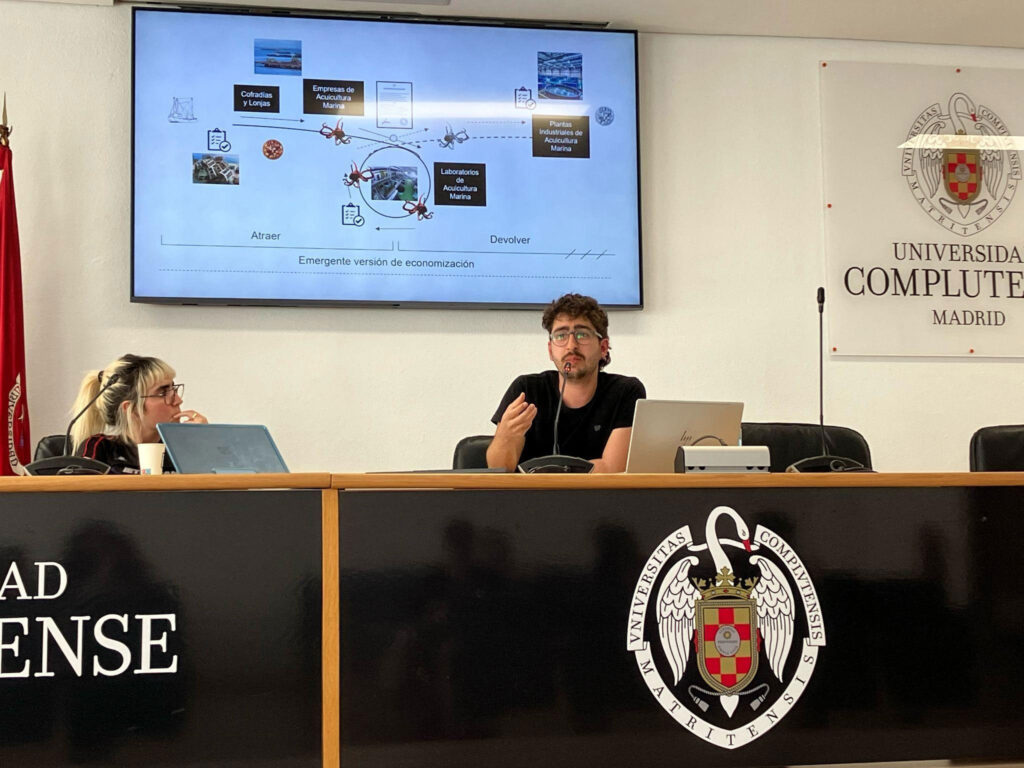
The first roundtable, “What Is an Anthropologist Like You Doing in an Oceanographic Institute Like This?”, explored technoscientific practices related to the observation and governance of the ocean, such as octopus aquaculture and climate risk negotiations in fishing communities. Key questions included: How can we account for the complexity of phenomena without invoking dichotomies or purifications (nature/society), but rather through entanglements and translations (economy-science)? How can one mediate between expert knowledges (scientific, fishing, policy-making) from an embodied social science expertise? Beyond expert mediation, how can we translate expert knowledge into registers accessible to non-expert publics?
The second roundtable, “More-than-Human Assemblages: Time, Cognition, and Memory”, addressed the role of materiality in articulating multiple temporalities and responsibilities: from archival heritage to distributed cognition through technology (Hayles, 2014). Questions included: In what ways does inquiry into heterogeneous human and non-human assemblages allow us to understand the temporalities they inaugurate (life-death, past-future)? How do such temporalities call for strategies of accountability (beyond voluntarism and anthropocentric intentionality) towards these human–non-human associations (e.g., infection management in heritage conservation, or moral responsibility attribution in artificial intelligence)?
The health-focused roundtable, “Is There a Doctor in the Room?”, examined medical and psychological categories (e.g. Polycystic Ovary Syndrome, venous thromboembolic disease, psychiatric diagnoses) as “boundary objects” (Star and Griesemer, 1989) and “immutable mobiles” (Latour, 1999), inscribing and translating bodily distress into problems for clinical care and research. Questions arising included: How do biomedical definitions of disease produce sex/gender binaries and bodily/social normalcy imperatives? How are agency and responsibility distributed among patients and healthcare professionals? STS approaches to health highlight the open ontology of diseases (Mol, 2023) and the controversies inherent in healthcare practices. How can researchers position themselves with care towards these multiple actors (doctors, drugs, patients, diseases, procedures)? How can community-based and STS approaches be legitimised against dominant biomedical and quantitative research models, and within public healthcare agencies?
The “On-Call Pharmacy: High Knowledges” roundtable reflected on substances as artefacts constituted through various production and consumption practices across clinical and recreational contexts. It prompted reflections such as: How can STS move beyond psychosocial approaches to drug use? What transformations in social life and the pharmaceutical industry bring about new articulations with substances like ketamine, Viagra, or GHB? As drugs are pharmacopolitical artefacts, how are they mobilised to reinforce or subvert gender and sexuality roles? What institutions, industries, and social actors are implicated in these substance-related practices?
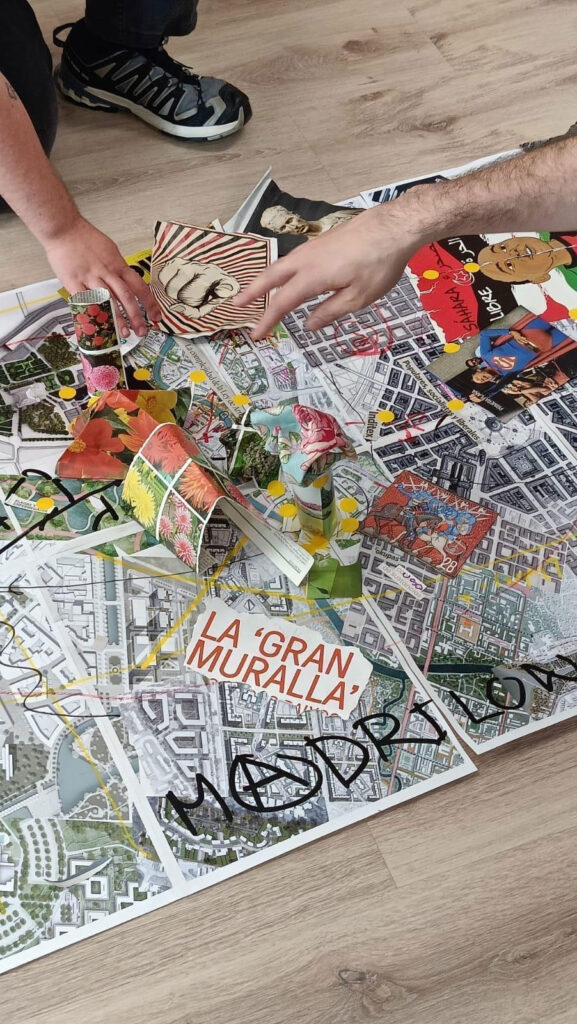
The “Collage Speculative Futures in Urban Spaces” workshop by the Protolab collective explored new forms of knowledge-making about urban design visions amidst socio-ecological crises, which necessitate attention to materiality (especially non-human). This workshop was inspired by questions such as: How does focusing on materiality partially rupture logocentrism (primacy of language over material in knowledge production) and challenge the rigidity of bodies (the dominance of the “lecturer” and “writer” as sole knowledge-producers)? How can such ruptures foster specific forms of imagination and intervention in urban futures beyond language?
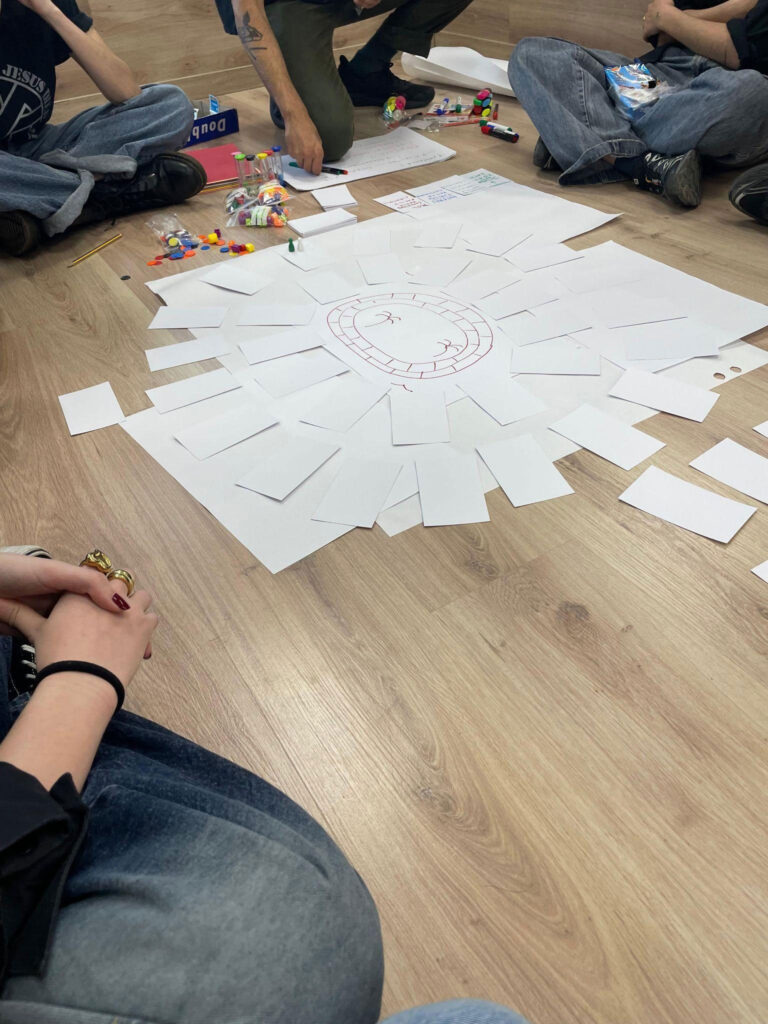
Two additional workshops – “The Board Game as an Assemblage: Composing and Re-Composing Game Elements” and “From Objective Writing to Object Writing” – continued to explore materially-engaged thinking. The first invited participants to collaboratively create a board game to engage with technoscientific and political problems across diverse professional, scientific, and regulatory communities. It showed how board design, game dynamics, and player roles constitute different approaches to issues (competition/cooperation, temporal scales, human/non-human actor entanglements). The second workshop used the collaborative “exquisite corpse” method to write from the perspective of an object (a suitcase), experimenting with an inversion of anthropocentric grammar in which objects are mere receptacles of human agency, to a story told by the object-as-subject where its body, actions and affects emerged.
In short, Meeting at the Intersection 2025 constituted a space for open, dialogic sharing of knowledges, experiences, and research processes. Through this, a dynamic infrastructure, a network of connections emerged, one that will enable ongoing weaving of dialogues and practices around Science and Technology Studies, and collective political and creative interventions in the contemporary world. For the next few years, we intend to continue building this network to foster and support creative encounter spaces for early-career researchers. Also, we hope to engage undergraduate and postgraduate students who are curious about the STS field or willing to start their inquiries in this area, but do not know where to start. We strongly believe that spaces like this can provide a valuable environment for interdisciplinary exchange, as well as a careful and relaxed atmosphere to share the academic, political and personal challenges we face. As we have experienced in Grupo Artefakto, when these difficulties are shared collectively social research turns out to be much more fun and fruitful.
References
Haraway, D. (1995). ‘Conocimientos Situados: La cuestión de la ciencia en el feminismo y el privilegio de la perspectiva parcial’, in Ciencia, Cyborgs y Mujeres, Madrid: Cátedra, pp. 313–346.
Hayles, K. (2014). ‘Cognition Everywhere: The Rise of the Cognitive Nonconscious and the Costs of Consciousness’, New Literary History 45(2): pp. 199–220.
Latour, B. and Hermant, E. (1999). ‘Esas redes que la razón ignora: Laboratorios, Librerías, Colecciones’, in García Selgas, F. J. and Monleón, J. B. (eds) Retos de la Postmodernidad, Madrid: Trotta, pp. 161–183.
Leigh-Star, S. and Griesemer, JR. (1989). ‘Institutional Ecology, ‘Translations’ and Boundary Objects: Amateurs and Professionals in Berkeley’s Museum of Vertebrate Zoology, 1907-39′, Social Studies of Science 19(3): pp. 387–420.
Mol, A. (2023). El cuerpomúltiple. Barcelona: Bellaterra.
Author biographies
María Juárez González holds a BA in Journalism and an MA in Sociocultural Analysis of Knowledge and Communication (UCM). She is currently pursuing a PhD in Feminist and Gender Studies, with a thesis entitled ‘The Unclassifiable: A Material Semiotics of “Psi” Categories in Mental Health Practices’. She collaborates on the CIMES R&D+i Project, focusing on the semiotic-material articulations between bodies, affects, subjectivation processes, and health-scientific knowledges.
Biel Navarro López holds a BA in Sociology and an MA in Sociocultural Analysis of Knowledge and Communication (UCM). He is a PhD candidate in Person and Society in the Contemporary World at the Universitat Autònoma de Barcelona. His thesis investigates material negotiations between queer and more-than-human worlds amid the socio-ecological crisis, focusing on material culture, ecologies, and (trans)feminist theories.
Pablo Alonso García holds a BA in Sociology (2022) and an MA in Social Sciences Research Methodology (2024) from Complutense University of Madrid. He is a PhD candidate in Society, Technology and Culture at the Open University of Catalonia, and a member of the “Care and Preparedness in the Network Society” (CareNet) research group at IN3. His research focuses on STS and multispecies studies, particularly the sociomaterial care of oceanic landscapes, and the economisation of aquaculture octopus as a technoscientific problem.
Iván Gallardo Esclapez holds a BA in Sociology and an MA in Sociocultural Analysis of Knowledge and Communication (UCM). He works on the CIMES R&D+i Project and in the Sexual and Reproductive Health Programme at Madrid Salud. His research interests lie in STS and gender studies, with a focus on chemsex practices beyond psychosocial frameworks, viewing drugs as sociomaterial artefacts and attending to gender, sexuality assemblages and harm reduction.
Lucía García Fernández holds a BA in Sociology and an MA in Sociocultural Analysis of Knowledge and Communication (UCM). She is a PhD candidate in Sociology and Anthropology at UCM, holding a PIF UCM 2024 predoctoral fellowship. Her research interests include STS in health, feminist epistemologies, and gender studies.
Ana Leirós Villas holds a BA in Sociology (University of A Coruña, 2022) and an MA in Sociocultural Analysis of Knowledge and Communication (UCM, 2023). She is currently a first-year PhD student in Anthropology and Sociology at UCM. Her research interests focus on political, religious, and gender analyses of cultural productions and expressions.
Saioa Marrón Pérez holds a BA in Social and Cultural Anthropology (UCM, 2023) and an MA in Social Analysis of Knowledge and Communication (UCM). She is a JAE Intro ICU 2024 research fellow at the Balearic Oceanographic Centre (COB-IEO-CSIC) working on the VADAPES II project about climate change and fisheries. Her research explores new practices emerging from the socio-ecological crisis, focusing on the semiotic-material negotiation of risk and uncertainty in the science-society interface from an STS perspective.
Patricia Alía Martínez holds a BA in Sociology (2021) and an MA in Social Sciences Research Methodology (2024) from Complutense University of Madrid. She is currently pursuing a PhD in Gender Interdisciplinary Studies at Rey Juan Carlos University, within the CIMES R&D+i project. Her research focuses on Science, Technology, and Gender Studies (STG) and Science and Technology Studies (STS), particularly concerning the intersections of health and gender. Her doctoral thesis explores controversies surrounding Polycystic Ovary Syndrome from the perspectives of patients.
Aaron Zau Nkosi Río holds a BA in Social and Cultural Anthropology (Autonomous University of Madrid, 2022) and an MA in Theory and Critique of Culture (Carlos III University of Madrid, 2023). His research focuses on STS, the anthropology of body and health, and new materialist philosophy. He currently works at the Institute of Public Goods and Policies (IPP-CSIC) in the MORPHEUS European project on prognosis improvement in venous thromboembolism.

